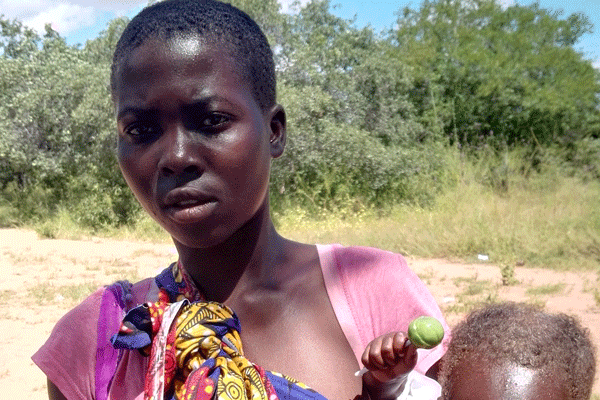
Women are a key part of the solution to hunger. They shoulder a major share of the responsibilities for household food security and experience has shown that resources in the hands of women often have a greater nutritional benefit to children than the same resources being controlled by men.
By Moses Mugugunyeki RECENTLY in Binga

On such a backdrop, the Zimbabwe Red Cross Society (ZRCS) has targeted vulnerable groups, mainly women in drought-stricken communities. In Binga where the organisation is running a cash transfer programme as part of its response to the El Niño induced drought through an emergency appeal project, women make a large chunk of beneficiaries.
Last week 600 families in Binga received cash as part of the ZRCS’s drought relief programme. Beneficiaries were mainly women who according to ZRCS secretary general Maxwell Phiri “are more likely than men to spend a given income on food for the family”.
Villagers expressed gratitude over the money saying it will go a long way in alleviating hunger. Binga is one of the drought-prone districts in the country.
“We are happy to receive such support from the Red Cross. It’s something that should be extended to the next rainy season because we have nothing in our fields. The little crop that survived the armyworm outbreak is being eaten by birds,” said Sibekhiwe Tshuma (21) of Cheenga Village in Manjolo ward.
Another villager from Bulawayo Kraal, Tariro Sibero (25) said it was better to be given money than food.
“I will use part of this money to pay school fees. Yes, it’s not much but I will pay the fees in instalments. The rest of the money will buy food of course. In the fields there is nothing to talk about because pests destroyed everything and we just hope that Red Cross will continue with such programmes,” she said.
- Chamisa under fire over US$120K donation
- Mavhunga puts DeMbare into Chibuku quarterfinals
- Pension funds bet on Cabora Bassa oilfields
- Councils defy govt fire tender directive
Keep Reading
Binga district administrator Lydia Ndethi-Banda welcomed the cash transfer component saying that it was part of a cocktail of drought relief programmes government was undertaking in the district.
“As you know, government is working round the clock to address issues of hunger in the district. This Red Cross project is complementing government efforts of alleviating hunger among the vulnerable in our society,” she said.
Ndethi-Banda said she was happy that Red Cross’s programme was targeting women whom she believes were key in food security issues.
“One thing that I liked about this programme is that women are the target beneficiaries. When it comes to food issues, women know what to do. From here they will go straight to the shops where they will buy food and basics,” she said.
Phiri said they will continue working with government and other humanitarian players in alleviating human suffering.
“Drought and any such natural or man-made disasters are not unique to Zimbabwe and as the nation’s leading humanitarian player and an auxiliary to government, we will continue playing our part in aiding the affected communities,” he said.
“Zimbabwe and the entire region has been largely affected by the El Niño-induced drought and our response is both emergency and developmental so that while providing present pressing food needs we also provide seed support to ensure better harvests come next season.”
The ongoing drought relief effort is being funded by national societies from the Red Cross family among them the British Red Cross, Danish Red Cross, Finnish Red Cross, Netherlands Red Cross, American Red Cross and Norwegian Red Cross.
Target beneficiaries of the Red Cross initiative include lactating mothers, the elderly as well as widows and child headed families, the chronically ill and generally disadvantaged members of the community.
Phiri said it was important that beyond the remedial support they capacitate communities to better prepare and respond to disasters like drought.
“ZRCS is looking at empowering communities, which is why beyond the emergency relief efforts we are also looking at supporting communities with seed support to guarantee better harvests in the event of adequate rains. We are also looking at water and sanitation so that we provide potable water which is safe from water-borne diseases,” he said.
More than 40,000 beneficiaries across the country are receiving support from the ZRCS emergency food security intervention.











